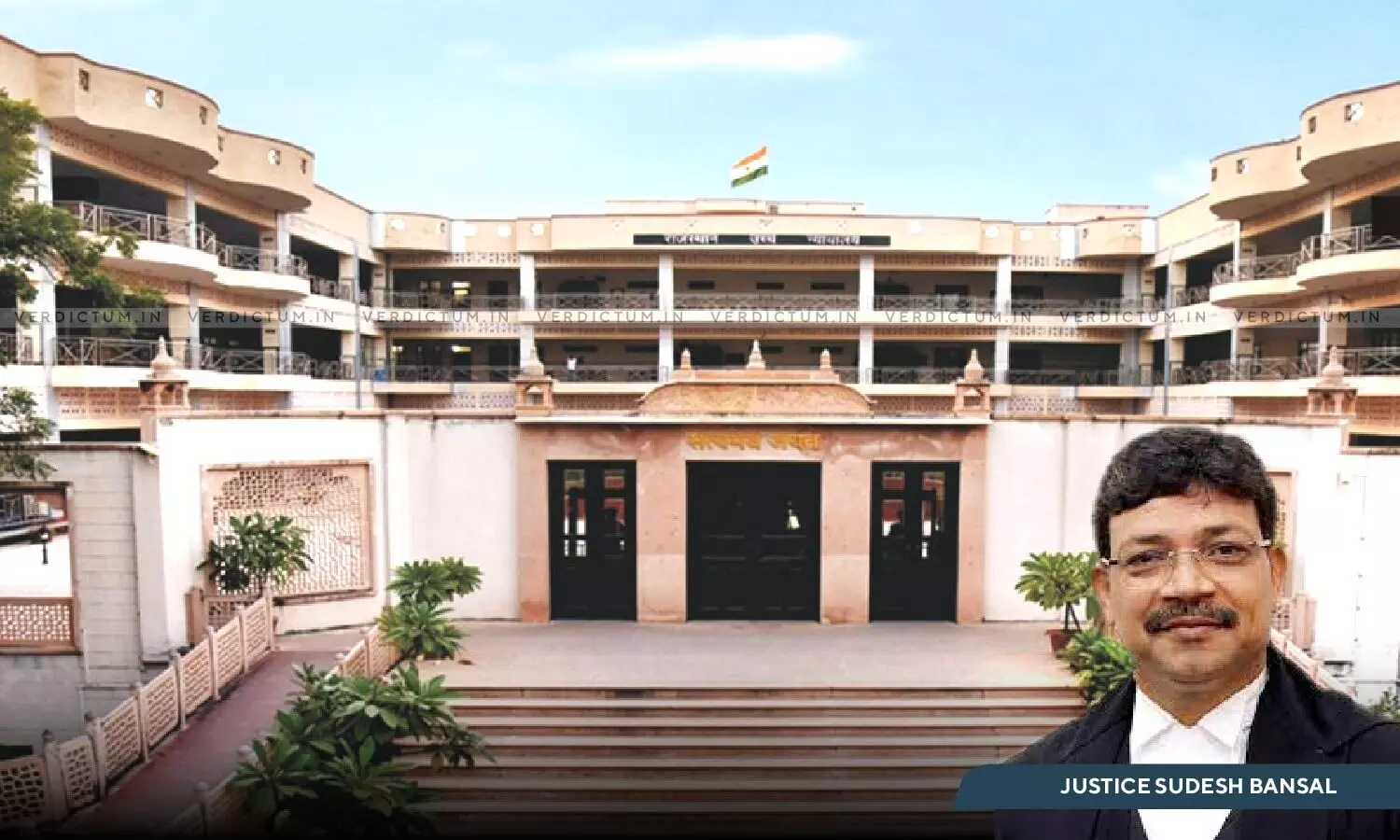
Order VIII Rule 1(3) CPC| A Pedantic And Technical View, Which May Scuttle Valuable Right Of A Party To Produce Evidence, Should Be Avoided: Rajasthan HC
 |
|The Rajasthan High Court has held that a pedantic and too technical view, which may scuttle the valuable right of a party to produce evidence, should be avoided in determining an application under Order VIII Rule 1(3) of the CPC.
The Court had to determine whether the impugned order whereby the trial Court declined to grant leave to the defendant to produce documents in question (bank passbooks and bank statements of defendants) on record in the present civil suit for partition and permanent injunction at the stage of plaintiff's evidence, requires interference by the High Court in exercise of jurisdiction under Article 227 of the Constitution.
A Single Bench of Justice Sudesh Bansal observed, “A cumulative perusal of the provisions of Order VIII Rule 1A(3) read with Order XIII Rule 1 CPC, it may be held that the object of such provisions, is to prevent the belated production of document(s), so that there may not be delay in trial and it may not work injustice to the other side.”
Advocate L.L. Gupta appeared for the petitioner, while Senior Advocate R.K. Mathur represented the respondents.
The trial court dismissed the petitioner's application under Order VIII Rule 1(3) of the CPC.
The petitioner contended that at the stage of seeking leave to produce documents by defendants under Order VIII Rule 1(3) of the CPC, the Court was not obliged to exercise the jurisdiction to examine the genuineness, evidential value and authenticity of the document, sought to be produced. He submitted that the leave may be granted by the Court, subject to satisfaction about the non-production of the document at the time of filing of the written statement and considering the sufficiency of reasons of delay.
Order VIII Rule 1A(3) CPC provides a second opportunity to the defendant to produce documents, which ought to have been produced in the Court along with a written statement, subject to seeking leave of the Court.
The High Court noted that the trial Court dismissed the application, recording a finding that the authenticity and genuineness of the bank passbook and bank statement, pertaining to defendant (now deceased), seemed to be “suspicious” and further, no sound reason has been assigned by the defendant, for not producing these documents with the written statement.
“The Court should exercise its discretionary jurisdiction to render justice, keeping in mind that the purpose of holding the trial of civil suit is giving opportunity to parties to produce relevant evidence without delay in order to arrive at truth by the Court. A pedantic and too technical view, which may scuttle the valuable right of any of the party to produce evidence, should be avoided,” the Court remarked.
Consequently, the Court held, “Thus, this Court is of considered opinion that the trial Court has failed to exercise its discretionary jurisdiction in true perspective and in judicious manner as much as declining to grant leave to defendant to produce documents in question, would cause greater hardship to the defendant and may result into injustice, whereas plaintiff may be compensated by awarding costs for delay and would face no prejudice, since he will get full opportunity to cross-examine the defendants on these documents.”
Accordingly, the High Court allowed the petition.
Cause Title: Anil Kumar Purohit v. Ashok Kumar Purohit & Ors. (Neutral Citation: 2024:RJ-JP:39653)
Appearance:
Petitioner: Advocates L.L. Gupta and Lakshya Kumar Sharma
Respondents: Senior Advocate R.K. Mathur; Advocates Ayush Goyal, Kapil Gupta and Mohd. Adil